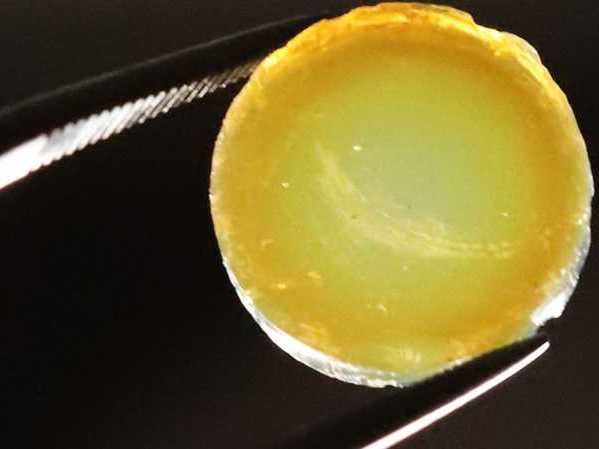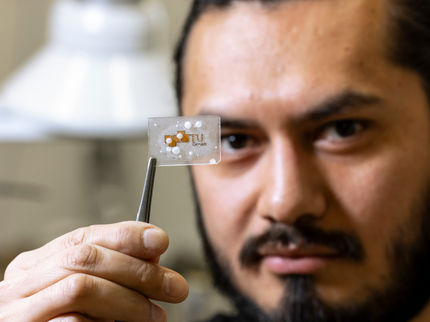The ideal 3D printing setting for innovative gloves
A robust yet flexible glove coating
protective gloves, such as those used for work, sport or household gardening, retrieve their protective function from a special coating. This coating provides abrasion resistance, makes the material waterproof and resistant to chemicals or oil, and even protects against cuts and punctures. Until now, coatings made of oil-based polymers, nitrile rubber or latex have been the main materials used. Using innovative technologies, scientists at the German Institutes of Textile and Fiber Research Denkendorf (DITF) have succeeded in developing a robust yet flexible glove coating using environmentally friendly Lignin in a 3D printing process.
Coatings that are subject to mechanical stress always suffer from a certain degree of abrasion that is dispersed in the surrounding area. This is also the case with coated protective gloves.
In order to avoid long-term pollution of the environment, materials should be used whose abrasion particles are biodegradable. The aim of the research project was to improve conventional protective equipment and integrate more sustainable materials.
The biopolymer lignin is a natural component of plant cells that is produced in large quantities as a by-product of paper manufacturing. Due to its properties, it represents an environmentally friendly alternative to oil-based coating polymers.
The scientists developed biopolymer compounds containing lignin, which were used to produce thermoplastic materials that can be processed using 3D printing.
Lignin has few polar groups, which makes lignins hydrophobic and therefore insoluble in water. For this reason, they biodegrade slowly. This makes them particularly suitable for durable coating materials.
Despite this durability, lignin particles that are released into the environment through abrasion biodegrade faster than the abrasion of conventional coatings. This is due to the much higher surface/volume ratio.
The use of 3D printing makes it possible to produce the coating precisely and efficiently. The 3D printing process also makes it possible to adapt the glove to the individual needs of the wearer. This increases wearer comfort and promotes freedom of movement.
The research project shows that the use of lignin not only offers ecological benefits, but that protective gloves coated with it are also particularly durable and resistant. They meet safety standards and at the same time contribute to sustainability in the world of work.
Most read news
Topics
Organizations
Other news from the department science
These products might interest you
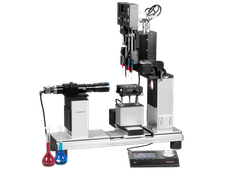
OCA 200 by DataPhysics
Using contact angle meter to comprehensively characterise wetting behaviour, solids, and liquids
With its intuitive software and as a modular system, the OCA 200 answers to all customers’ needs
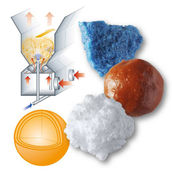
Tailor-made products for specific applications by IPC Process Center
Granulates and pellets - we develop and manufacture the perfect solution for you
Agglomeration of powders, pelletising of powders and fluids, coating with melts and polymers
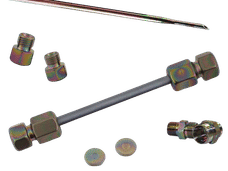
Dursan by SilcoTek
Innovative coating revolutionizes LC analysis
Stainless steel components with the performance of PEEK - inert, robust and cost-effective

Get the chemical industry in your inbox
By submitting this form you agree that LUMITOS AG will send you the newsletter(s) selected above by email. Your data will not be passed on to third parties. Your data will be stored and processed in accordance with our data protection regulations. LUMITOS may contact you by email for the purpose of advertising or market and opinion surveys. You can revoke your consent at any time without giving reasons to LUMITOS AG, Ernst-Augustin-Str. 2, 12489 Berlin, Germany or by e-mail at revoke@lumitos.com with effect for the future. In addition, each email contains a link to unsubscribe from the corresponding newsletter.
Most read news
More news from our other portals
Last viewed contents
Tar_sands
Haplogroup_O2b_(Y-DNA)
Low_density_lipoprotein_receptor-related_protein_8
Haplogroup_E3a_(Y-DNA)
Hybrid nanomaterials bristle with potential
Luis_E._Miramontes
Haplogroup_E_(Y-DNA)
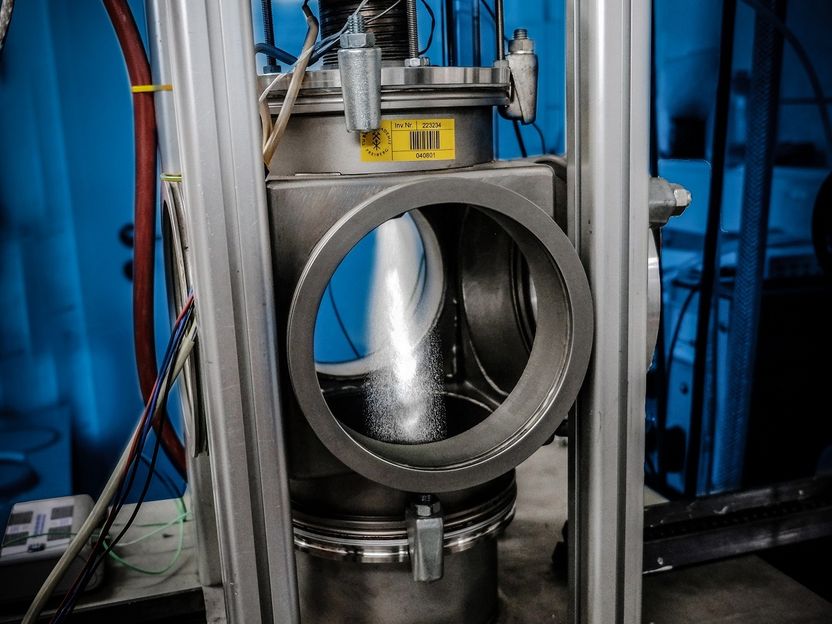
New process for natural-based microparticles in cosmetics - Research against microplastics

Speeding up extreme fast charging capability in lithium-ion batteries - “Extreme” fast charging, high energy density, and cycle life are the “holy grail” of features that the automobile industry seeks out in batteries

Pioneering plasma-catalytic process for CO2 hydrogenation to methanol under ambient conditions
